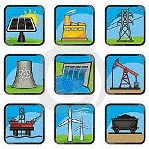Department of Agricultural Economics: Undergraduate Research

Op-Eds from ENSC230 Energy and the Environment: Economics and Policies
Date of this Version
Fall 12-19-2016
Document Type
Editorial
Citation
Op-ed from ENSC 230. Energy and the Environment: Economics and Policy, University of Nebraska-Lincoln, Department of Agricultural Economics, Fall 2016
Abstract
Hydraulic Fracturing or commonly known as fracking has caused a big boom in the oil and gas industry making it easier for us to extract oil and gas from the ground, but has serious side effects that as they cause harm to us and our environment. We should slow or stop fracking at once if we want a clean and healthy environment to live in.
Fracking has become widely popular in the last decade and has brought us benefits on the oil and gas side and with little lack of information and support it has been difficult to put restrictions on fracking.
Fracking is popular among develOp-ed nations and now occurs in more than 30 states.
Fracking causes much concern from the public due to all the hazardous effects from fracking, such as water pollution and the release of greenhouse gas emissions, along with other consequences.
The U.S. Geological Survey, in a March report on "induced earthquakes," said as many as 7.9 million people in parts of Kansas, Colorado, New Mexico, Texas, Oklahoma and Arkansas now face the same earthquake risks as those in California.
The report found that oil and gas drilling activity, particularly practices like hydraulic fracturing or fracking, is at issue.
Though fracking has some benefits in the short-run, it will be hazardous to our environment and our society if we don’t have stronger regulations on fracking.
The heavy use of fracking has caused more complaints from the public, which demands for stronger policies that would make fracking more efficient and less pollutant.
The contamination/pollution of water from fracking has drawn great attention in the U.S. We have seen many complaints about chemicals in our water system from fracking due to leaks in the pipes and wells. Natural gas might seem like a better alternative that lowers the emissions of greenhouse gases, but when using and even extracting natural gas it requires a significant amount of work and energy, that still releases a relatively high amount of GHG’s.
This is why we need to have better policies in place that will bring us better standards and make fracking more efficient without harming people or the environment around us.
Since fracking is considered a better alternative because we can extract natural gas, which is cleaner than coal and produces less greenhouse gas emissions than coal, fracking seems to also get more leniencies towards aggressive policies, which makes it harder to watch and control fracking.
Fracking in the U.S. has caused oil prices to go down along with a decrease in oil imports. While we have benefited from it economically the process of injecting high amounts of water and chemicals deep into the earth’s surface at extremely high pressures puts a negative effect on the environment.
With lenient fracking policies companies will keep getting away with their operations with usually no supervision from an environmentalist or someone qualified to make sure the fracking company is following protocol. “Thousands of Texas oil and gas facilities are allowed to self-audit their emissions, and pollution complaints rarely result in punishment for the companies. Out of 284 oil and gas industry-related complaints in the Eagle Ford region between January1, 2010 and November 19, 2013, only two resulted in fines” (Banerjee, 2013).
There is major distrust between the fracking companies and the public regarding to the data the fracking companies record and also fracking companies refusing to release what chemicals they use during the fracking procedure. With fracking already being a concern this puts a red mark on fracking companies that do not wish to comply with the state or federal governments.
We need to be concerned with all the fracking going on in the world and not let it pass by because it would be more costly to rebuild or cleanup after the damage is done.
The United Nations Environment Program has concluded, “Hydrologic fracking may result in unavoidable environmental impacts even if (unconventional gas) is extracted properly, and more so if done inadequately. Even if risk can be reduced theoretically, in practice many accidents from leaky or malfunctioning equipment as well as from bad practices are regularly occurring”(Hardy, 210).
Fracking does have some beneficial aspects, such as being able to extract more gas and oil giving us more energy to use and produce, but at the same time it is just another short-term method that helps us extract oil and gas.
In terms of its effect on the environment, it is destructive to our health and our world. We need to focus on stronger policies that will limit and regulate fracking, while at the same time find better methodologies that will make fracking more efficient and less polluting. Fracking should just be temporary solution, until we find better ways through technology or renewable resources that will give us clean and efficient energy.
Included in
Environmental Indicators and Impact Assessment Commons, Natural Resources and Conservation Commons, Oil, Gas, and Energy Commons


Comments
Copyright 2016, Nick Nardone. Used by permission